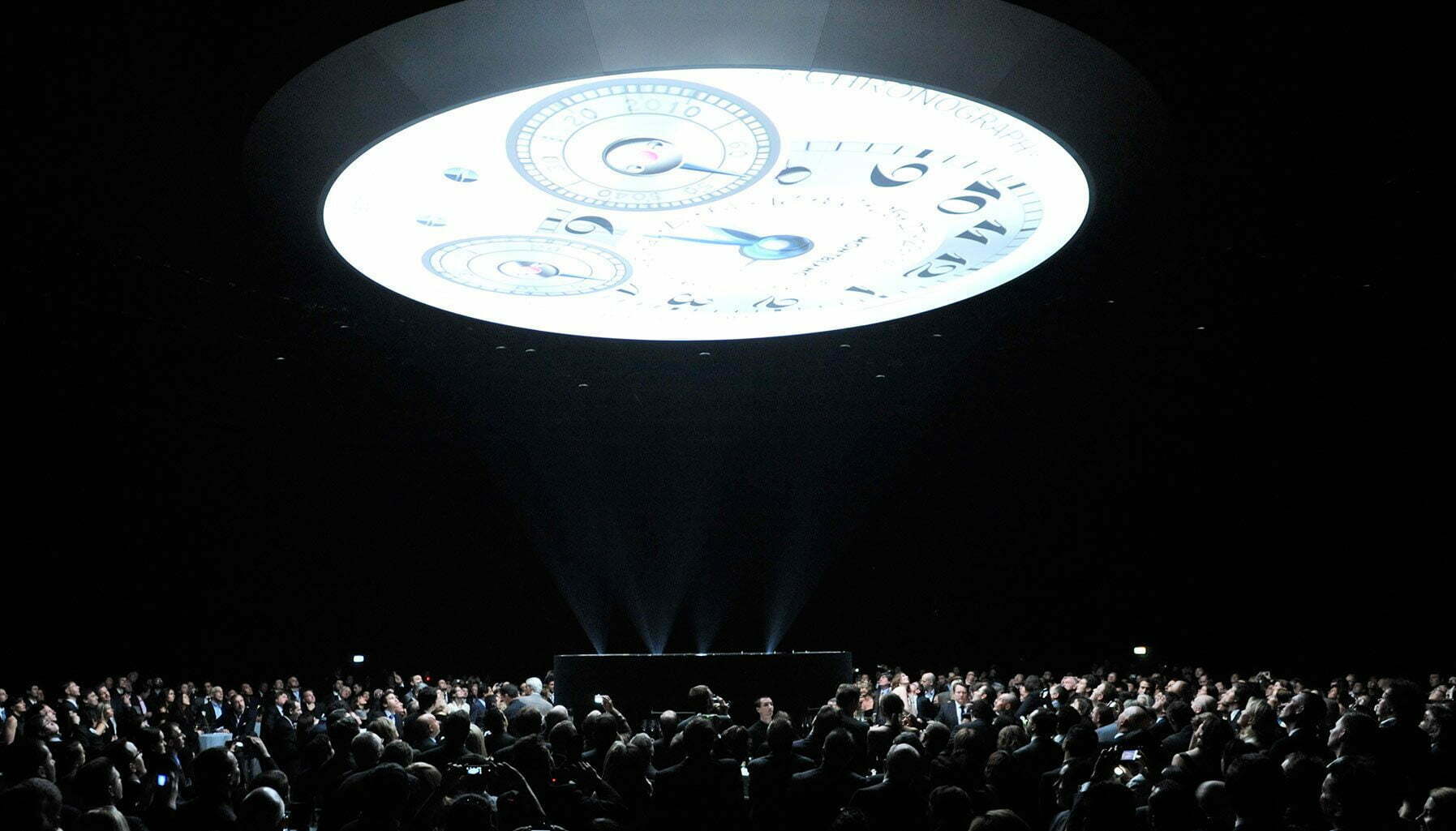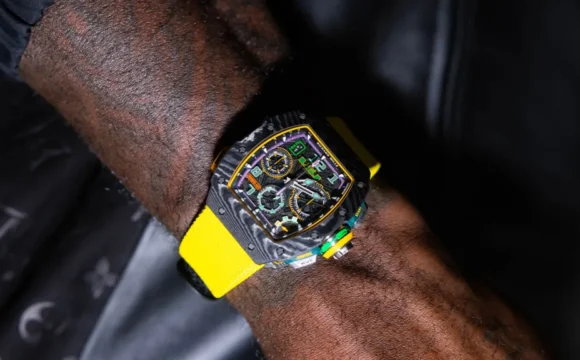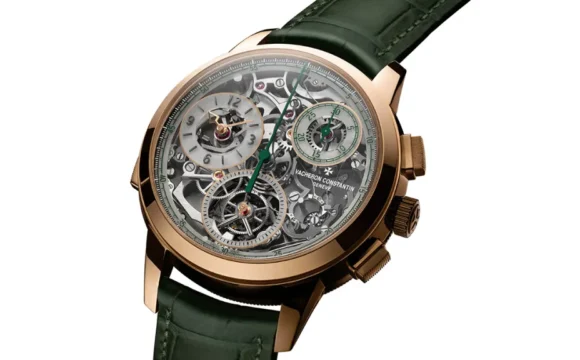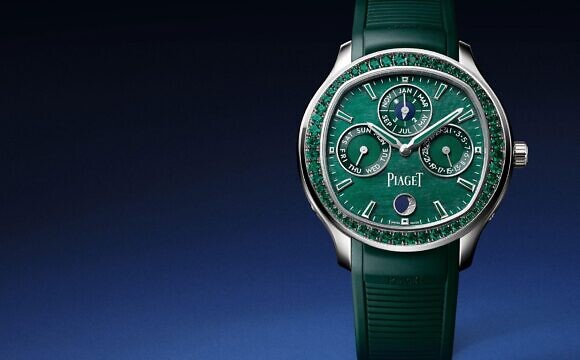Stars in their eyes
The 26th edition of Salon International de la Haute Horlogerie in Geneva presented a sumptuous, dazzling spread of timepieces. Here, we present the SIHH 2016 review.
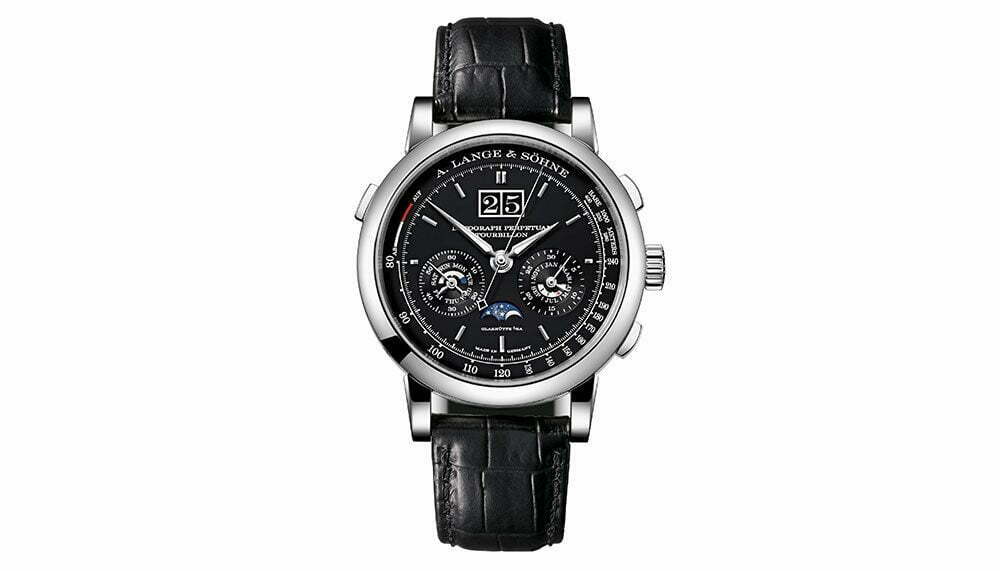
A. Lange & Sohne
The Datograph Perpetual Tourbillon this year cleverly positions the tourbillon behind the dial, to simplify matters upfront. Its chronograph is accurate to one-fifth of a second. Meanwhile, its perpetual calendar complication offers instantaneously jumping indications – including the moon phase – which crisply click into the new position. Intense engineering yields a patented interlocking system, translated into a simple pusher.
A single push easily advances indications on the calendar without jamming the 729-part movement which also happens to integrate A. Lange & Sohne’s patented stop-seconds mechanism.
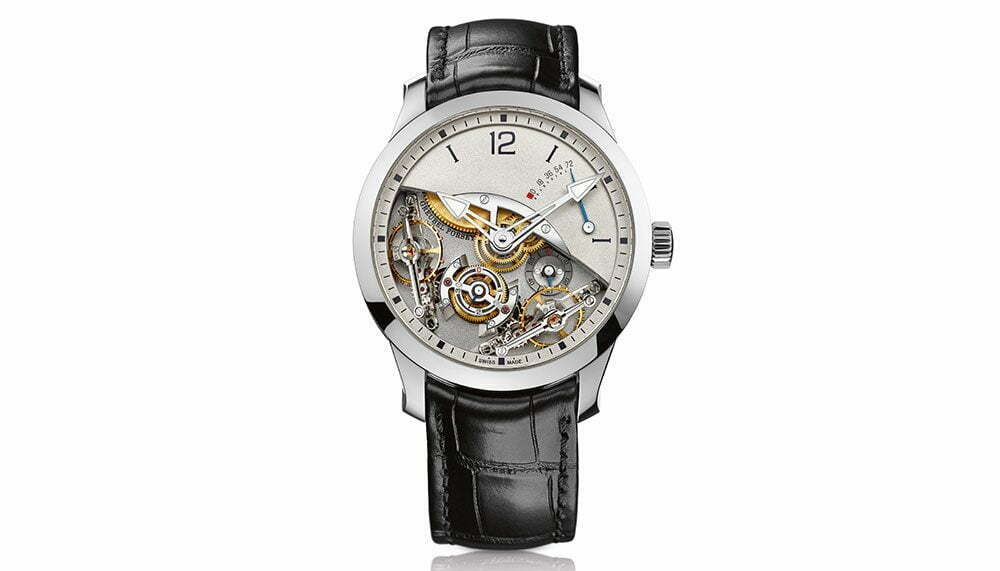
Greubel Forsey
In its nearly two-decade-long obsession with chronometric accuracy, Greubel Forsey’s painstaking research has yielded the Double Balancier for 2016. Two inclined balance wheels provide the requisite stability in performance, augmented by a fantastical-sounding Differential Spherique Constant which confers a steadier amplitude. The inevitable result is a chronometric performance which outstrips most others in the field of high horology. This achievement, plus the brand’s extreme attentions to polishing, engraving and all manner of finishing, are available in just 33 white gold pieces.
 Audemars Piguet
Audemars Piguet
A sense of watchmaking wizardry pervades the Royal Oak Double Balance Wheel Openworked. Skeletonisation on the dial allows a full appreciation of the swinging balance wheel, in its eternal ballad with the balance spring. When viewed through both the glare-proofed sapphire crystal and caseback, the maison’s newly patented dual-balance geometry is clearly evident. A second balance wheel and balance spring assembly on the same axis generates increased precision and stability, a key imperative of watchmakers since the 17th century. Hand-finished filing and decoration completes this breathtaking vision, with a choice of stainless steel and pink gold as options, to encase the self-winding calibre 3132.
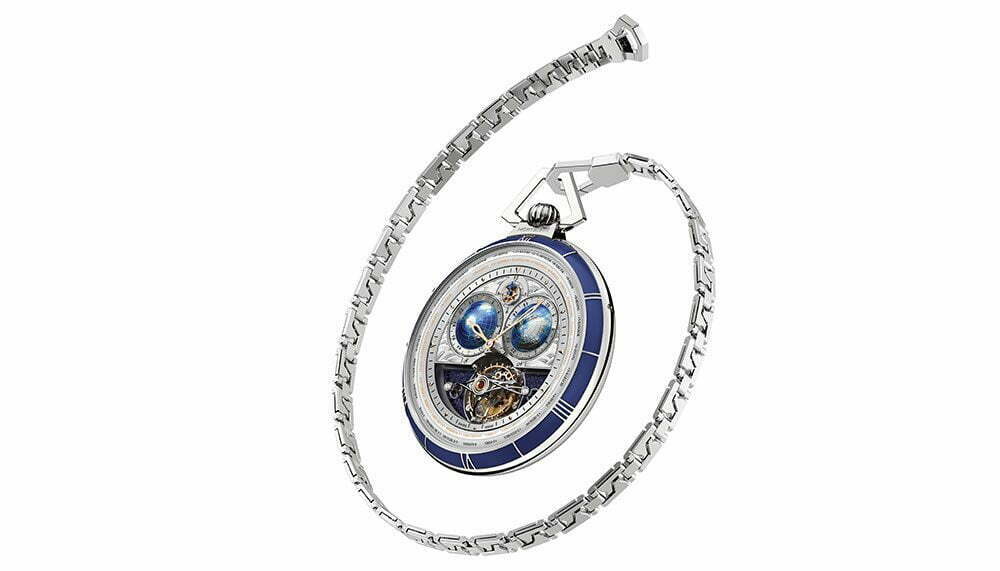 Montblanc
Montblanc
A fateful transatlantic trip in 1906, undertaken by Montblanc’s three founders, resulted in the company’s subsequent birth and purpose. To celebrate its 110th anniversary in 2016, Montblanc honours the golden age of travel with a 60mm Montblanc Collection Villeret Tourbillon Cylindrique 110 Years Edition pocket watch. The piece harks back to marine chronometers of old, and displays the traditional artisanal aesthetics of hand-engraving, micro-painting and Grand Feu enamelling. Backed by the considerable innovations of Montblanc’s Villeret manufacture, this timepiece also integrates the cylindrical hairspring, triple time zones and a 24-hour world-time indication around two halves of the globe.
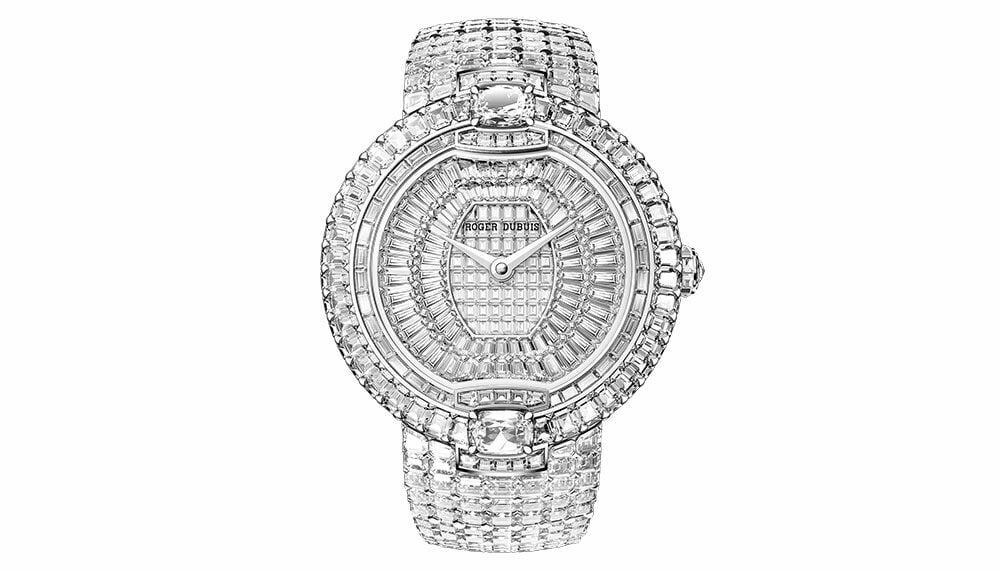 Roger Dubuis
Roger Dubuis
Selecting its ladies’ Velvet collection to showcase its vocation as a jeweller of rare artistic masterpieces, Roger Dubuis unleashes five exuberant references to thrill the senses. In this collection, a series of watchmaking crafts was harnessed. These crafts range from sculpted floral marquetry to a creative collaboration with Massaro – a leading name in haute couture – manifested by a pleated leather strap. Sparkling brightest, undoubtedly, is the Velvet Ribbon, with over 53 carats of diamonds adorning this 38.5mm platinum piece and bracelet. The proximity of these stones to each other amplifies its ineffable sparkle, with its technical credentials burnished by the Geneva Hallmark certification on this self-winding ode to haute joallerie.
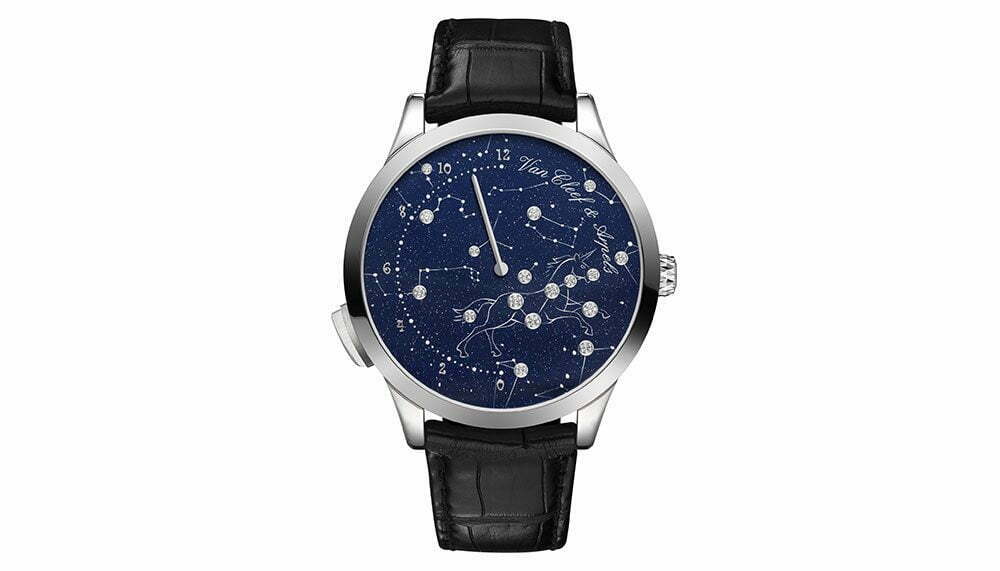 Van Cleef & Arpels
Van Cleef & Arpels
Drawing from stories, poetry and dreams, the maison offers its Midnight Nuit Lumineuse watch, a men’s piece illuminated by mechanical power through the use of piezo-ceramic blades. The generation of eight volts of electrical energy through the purposeful friction of these blades – upon the push of a button – illuminate six electroluminescent diodes for a sustained period of four seconds. These six diamond-like lights form the basis of the Monoceros – commonly known as the Unicorn – constellation on the diamond-accented, miniature-painted aventurine glass dial.
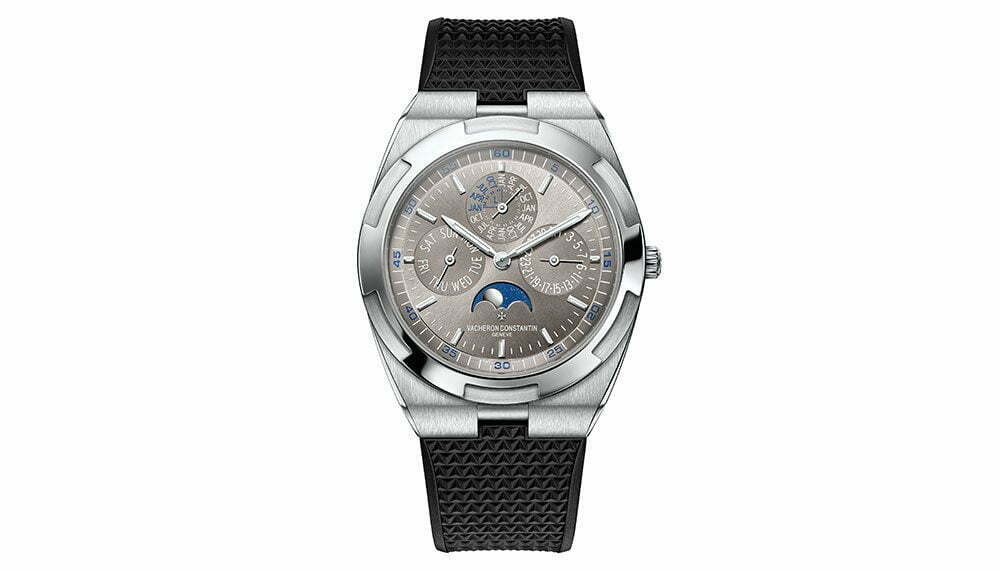 Vacheron Constantin
Vacheron Constantin
When Vacheron Constantin debuted its Overseas collection in 1996, the watchmaker had kitted it out for an active lifestyle. The maison imbued this collection with anti-magnetic and water-resistance properties, as well as making it hardier with a solid caseback. Fast forward 20 years, and one finds the redoubtable Hallmark of Geneva on the latest iteration of the Overseas. The jet-setting crowd will find this collection offering options of leather and rubber straps, as well as metal bracelets which may be easily fitted into a case of seamless curves. At the top of the line, the Overseas Ultra-Thin Perpetual Calendar encases the self-winding 1120 QP calibre in 41.5mm white gold.
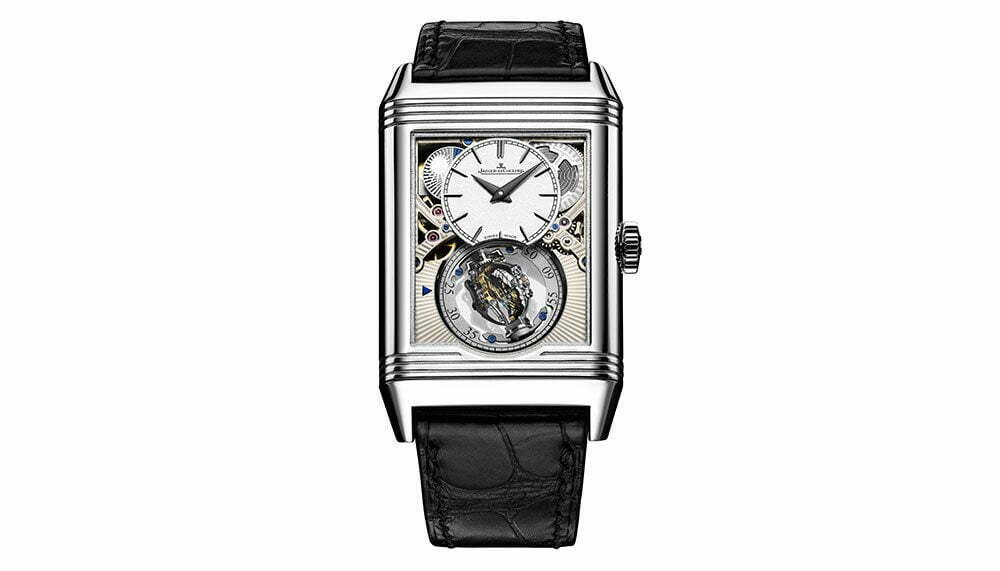 Jaeger-LeCoultre
Jaeger-LeCoultre
On the occasion of the Reverso’s 85th year, Jaeger-LeCoultre – which pioneered this inventive timepiece – decided to merge its technical proficiency that is the Gyrotourbillon, with a platinum Reverso model. Issued in a limited series of 75 pieces, this manual-wound timepiece offers a view of the imperious Gyrotourbillon; one which has been slimmed by 30 per cent to perfectly fit the Reverso’s elegant architecture. Other technical flourishes abound, from an open-worked display to the Gyrolab balance-wheel, crafted to reduce air drag and improve timekeeping accuracy.
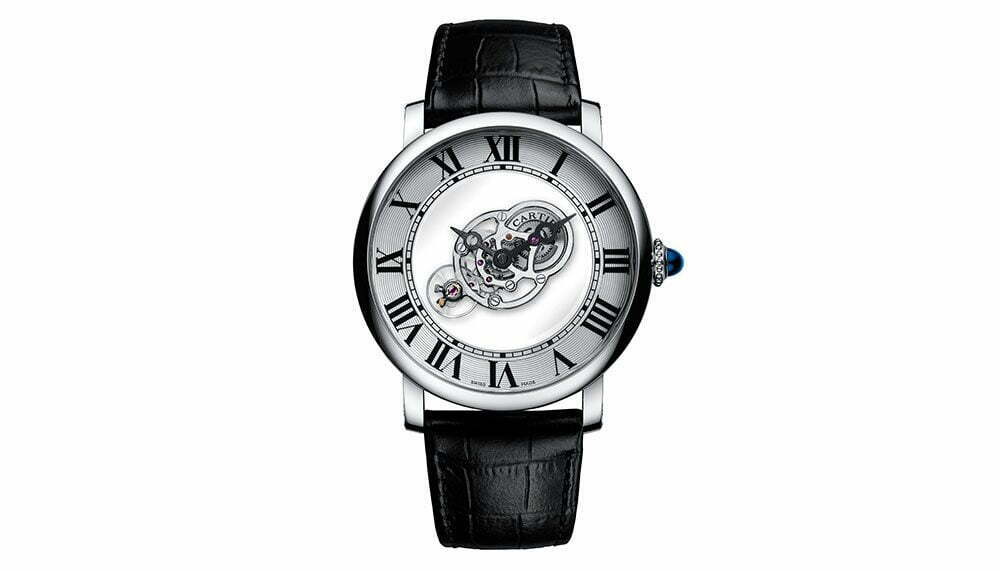 Cartier
Cartier
Horological ingenuity enables Cartier to advance the concept behind its much-venerated mystery clocks this year. The spellbinding Rotonde de Cartier Astromysterieux visually relieves the barrel, balance-wheel, escapement wheel and gear train of its physical anchors. This ethereal architecture results in a quartet of timekeeping components hovering within the sapphire discs, making an enigmatic rotation every minute. Naturally, three patents are pending for this 9432 MC calibre which challenges the notions of time-setting, barrel-winding and even reading time. Available in a 43.5mm case of palladium, this timepiece is limited to 100 numbered pieces with extra satisfaction in the form of baguette-cut gem-set versions.
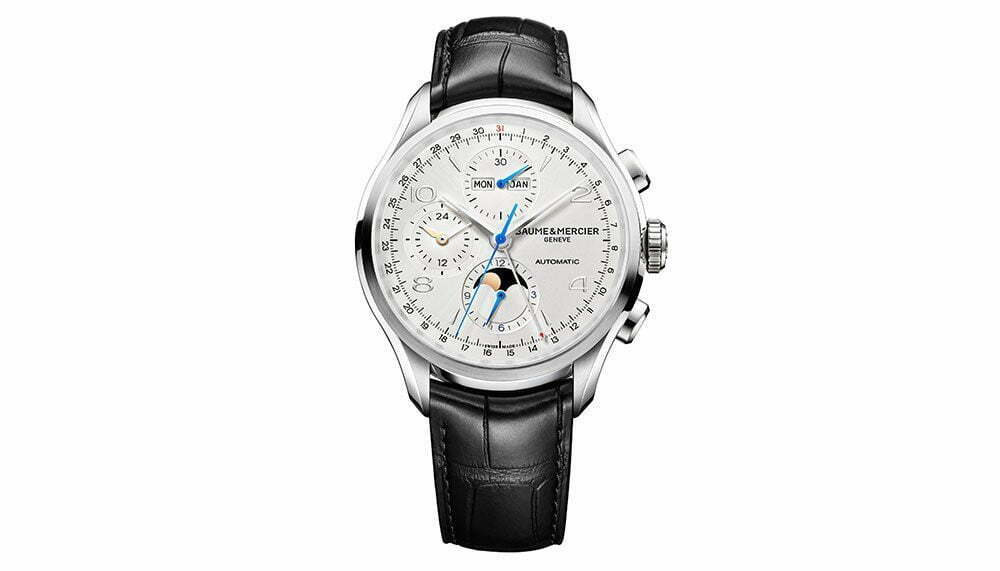 Baume & Mercier
Baume & Mercier
This year, fine timekeeping mechanics are evident in the Clifton Chronograph Complete Calendar; replete with chronograph, complete calendar, moon phase and 24-hour indicator subdial. This personable timepiece summarises the technical and aesthetic history of this centuries-old watchmaking brand, with traditional decorative codes apparent in snailed and Geneva striping finishes, as well as circular-grained bridges, plate and blued screws. Housed within its 43mm case – available in three distinct options – is the highly proven and hand-finished automatic Caliber Valjoux 7751.
Richard Mille
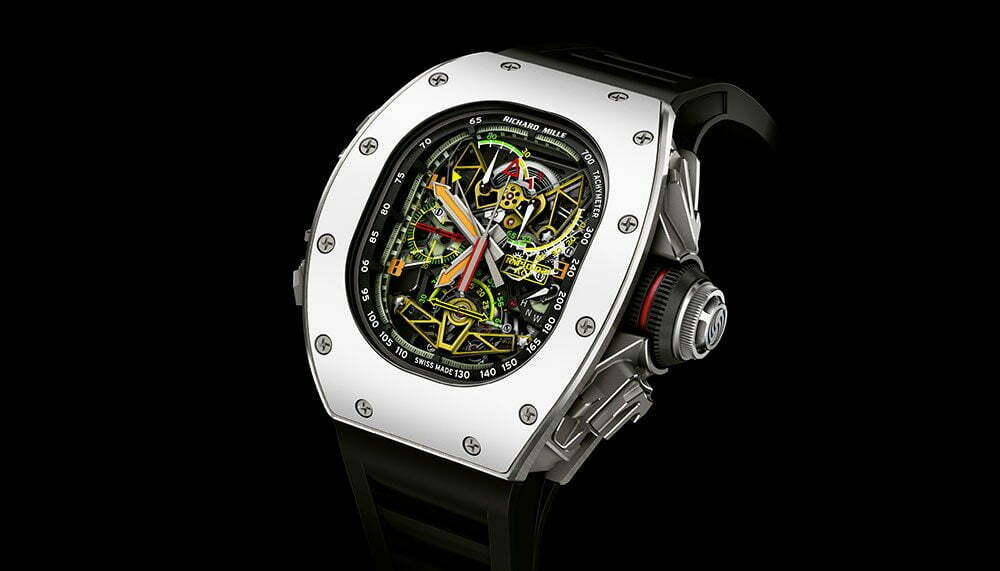 The maverick watchmaker’s collaboration with Airbus Corporate Jets reinterprets modern aircraft design as a Richard Mille timepiece. The RM5002 – limited to 30 titanium-aluminium pieces – is co-designed between Richard Mille himself and Sylvain Mariat, Airbus Corporate Jets’ head of its creative design studio. The duo utilised design cues from the aviation partner such as the portal-shaped window, torque screws, livery colours and a special application of aeronautical coating used to protect jet engine and chassis parts from corrosion and environmental conditions. This airy, skeletonised movement bears the superlative durability of a Richard Mille – by also possessing a split-seconds chronograph crafted from titanium components which reduces internal friction and energy consumption.
The maverick watchmaker’s collaboration with Airbus Corporate Jets reinterprets modern aircraft design as a Richard Mille timepiece. The RM5002 – limited to 30 titanium-aluminium pieces – is co-designed between Richard Mille himself and Sylvain Mariat, Airbus Corporate Jets’ head of its creative design studio. The duo utilised design cues from the aviation partner such as the portal-shaped window, torque screws, livery colours and a special application of aeronautical coating used to protect jet engine and chassis parts from corrosion and environmental conditions. This airy, skeletonised movement bears the superlative durability of a Richard Mille – by also possessing a split-seconds chronograph crafted from titanium components which reduces internal friction and energy consumption.
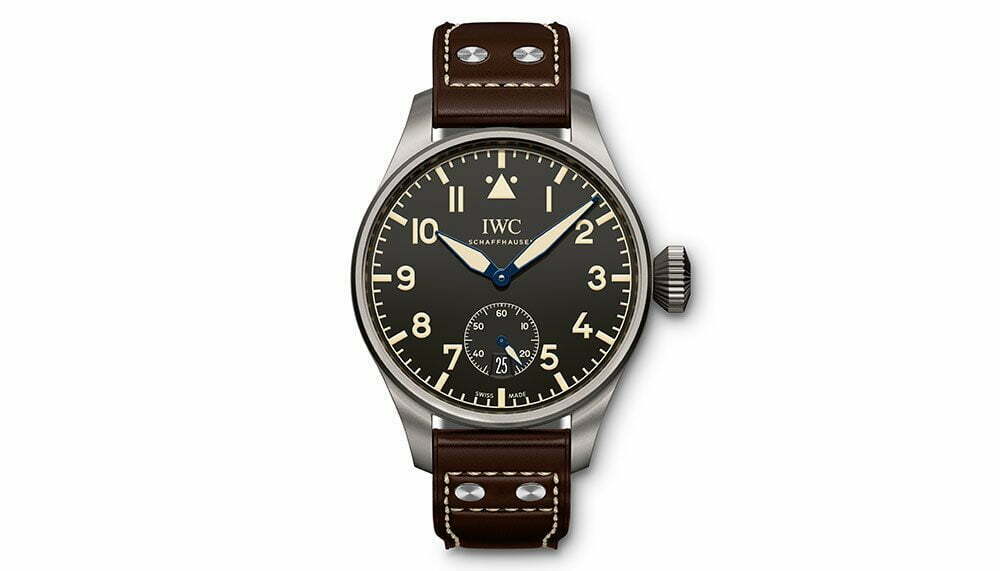 IWC Schaffhausen
IWC Schaffhausen
Steeped in a heritage of pilot watches, IWC decided to reanimate its historic observer timepieces, the very same watches which were omnipresent on the wrists of fighter pilots during the Second World War. This year, the novel hand-wound Big Pilot’s Heritage Watch 55 offers an un-missable historical perspective with the largest wristwatch made by IWC Schaffhausen. Limited to only 100 pieces, it dethrones the previous champion, the 52-calibre, which was issued in the 1940s. For this year’s iteration, titanium was chosen as a case material to bring its weight down to 150g versus the historical model which weighed 183g in stainless steel. The same visual cues drawn from cockpit instruments persevere on a matte black dial with Superluminova for nocturnal legibility.
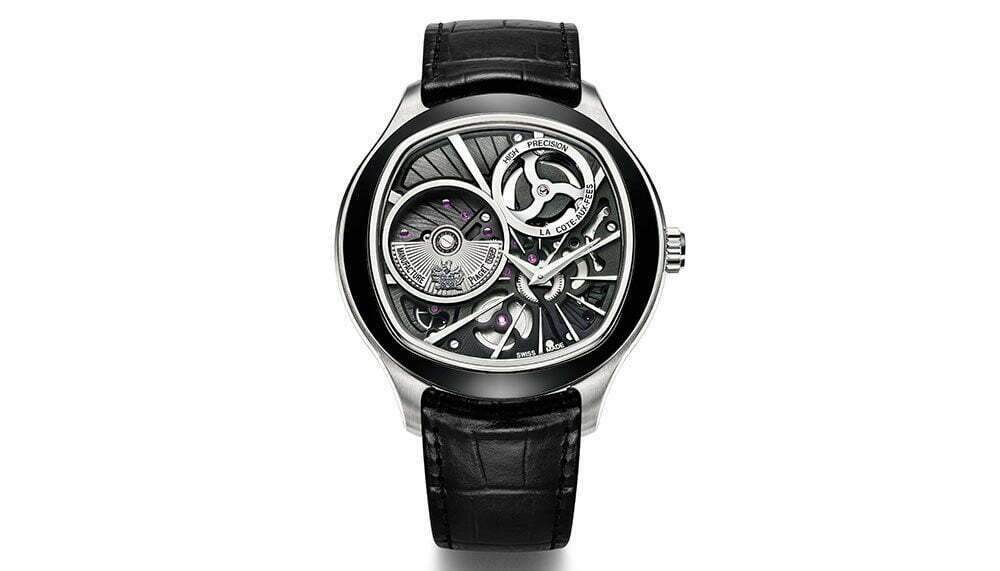 Piaget
Piaget
In a revolutionary move, Piaget unveils its 700P movement featuring a generator system to convert mechanical to electrical energy. This movement is a tribute to Piaget’s first in-house quartz movement – the 7P calibre of 1976. More importantly, it is a clarion call of Swiss watchmaking’s arrival in the era of ultra-precision. A high-frequency oscillating motor provides electronic regulation of this self-winding calibre – at a precise speed of 5.33 turns per second. This generator duly regulates the movement’s cadence, offering a quartz-like precision to the automatic movement of plus or minus two seconds per day.

